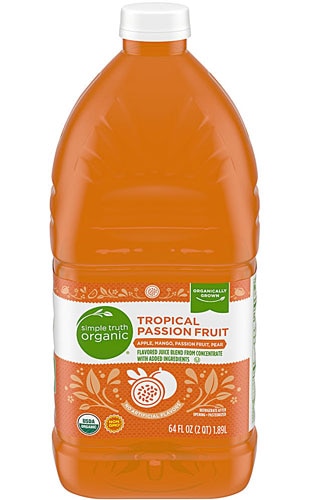Americans drank a whopping
40.4 gallons of soda per person in 2021. Although that’s a decline of 5.4 gallons per person since 2006, soda and other sweetened beverages remain the
primary sources of sugar in the American diet.
And no wonder. Soda is everywhere: in vending machines, at convenience stores, and stocked enticingly in supermarket endcaps. And it’s hard to imagine a party without a certain iconic red-and-white logo peeking out of the cooler.
Despite major health organizations like the Centers for Disease Control, the American Heart Association and the World Health Organization sounding the alarm over the adverse effects of drinking liquid sugar, many people are still stuck in their soda habits. But some innovative brands are seeking to change that by introducing healthier soda alternatives.
Is soda really that bad for you?
Here’s the problem with standard sodas: Drinking a single can puts you over the recommended sugar limit for the day. The American Heart Association advises
capping daily sugar intake at no more than 36 grams (9 teaspoons) if you’re a man or 25 grams (6 teaspoons) if you’re a woman. A 12-ounce soda typically contains about 40 grams of sugar—that’s 10 teaspoons.
Excess sugar intake has been linked to a higher risk of several conditions:
High-fructose corn syrup, a sweetener in many popular sodas, may have even more significant health impacts than regular sugar. Eating (or drinking) a lot of fructose can raise blood sugar and reduce insulin sensitivity, which raises your risk of developing diabetes. Fructose consumption is also associated with
higher levels of inflammation and oxidative stress. This combination may accelerate aging and increase the likelihood of chronic disease.
Soda and gut health
Part of the problem may be soda’s effect on your gut. All that sugar can
throw your microbiome out of whack and allow
pro-inflammatory microbes to flourish. This state of dysbiosis can disrupt your immune system and put you in a state of chronic low-grade inflammation—both of which are associated with higher disease risk.
Reaching for sugar-free diet soda doesn’t fix the problem. The artificial sweeteners in these sodas appear to
alter the microbiome in ways that can promote weight gain and diabetes. One study found that mice fed artificial sweeteners became obese, possibly because of an
increase in gut bacteria that extracted more energy from the food they ate. In humans, sweeteners like saccharin and sucralose may cause blood sugar imbalances by changing the populations of gut bacteria that
control glucose tolerance.
Are there healthy alternatives to soda?
More Americans are becoming aware of these issues and are seeking healthier beverage options. Calorie consumption from soda has
decreased 11.8% since 2014 while sales of low- and zero-sugar beverages increased 8.6%. In response to the demand, brands are incorporating natural sweeteners and functional ingredients into new formulas with potential health benefits.
Top healthy soda brands
You can try the trend for yourself with one of these better-for-you beverages:
- Culture Pop uses fruit juices, herbs and spices to create unique flavors with no added sugar—but they do add probiotics to feed good gut bacteria.
- Health-Ade Pop is a kombucha-meets-soda combination sweetened with fruit juices and monk fruit that has only one-eighth of the sugar in most regular sodas.
- OLIPOP enriches classic soda flavors with 9 grams of prebiotic fiber per can and uses stevia as a sweetener to keep sugar content low.
- Poppi combines cane sugar with stevia in low-sugar flavors that range from Classic Cola to Raspberry Rose and adds inulin fiber for a gut-healthy boost.
- Zevia zero-calorie sodas are sweetened with stevia and available in caffeinated and caffeine-free varieties.
Keep in mind that, although they have little or no sugar, these soda alternatives aren’t one-to-one replacements for a regular soda habit. Sweeteners like stevia and monk fruit don’t appear to cause blood sugar imbalances or disrupt gut health, but the sweetness may still drive cravings for other sugary foods. Your healthiest option is to move toward a diet with as few sweetened beverages as possible.
How to kick the soda habit for good
Saying goodbye to soda is possible, even if you’re used to drinking it every day. Start with small steps to cultivate habits that help you cut back on sweetened drinks:
- Change your daily route to avoid vending machines or stores where you usually buy soda.
- Try fruit-sweetened sparkling water when sugar cravings hit.
- Beat the afternoon slump with an energizing green protein smoothie.
- Make iced tea with herbal or fruit tea blends.
- Use an infuser bottle to turn regular water into a fruit- or herb-flavored treat.
- Snack on fruit or dried fruit when you want something sweet.
Of course, there’s nothing wrong with having a healthy soda alternative once and a while. These innovative beverages are fun to drink, and some
may have benefits compared to traditional soda. Pick some up for your next party, and enjoy the classic fizzy flavors without all the sugar.



